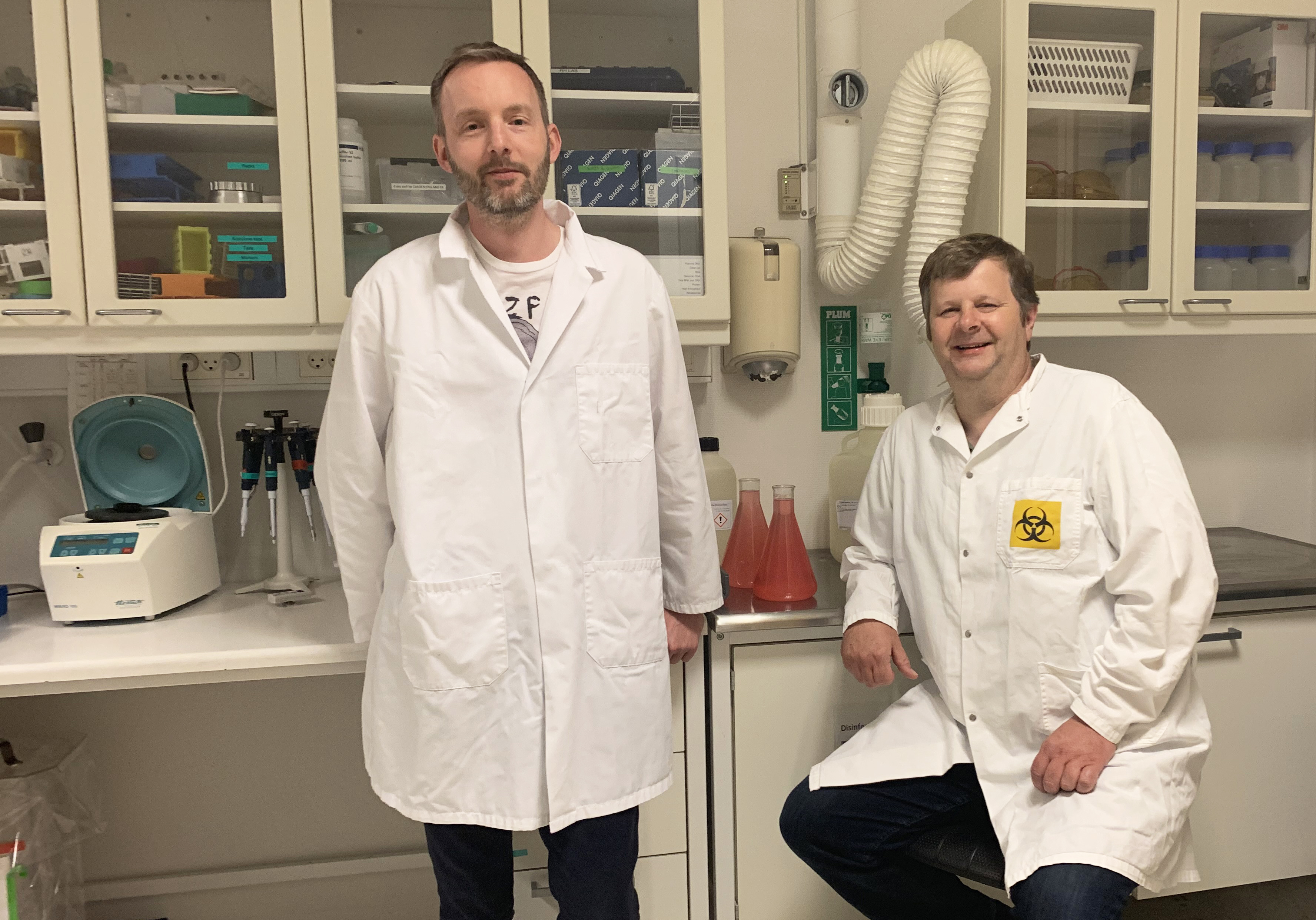Signal substance that can potentially be used to treat COVID-19 also has negative effects
It is difficult wage war without causing collateral damage , and the same goes for our immune system when it has to fight viral infections, such as influenza and COVID-19. Research by a team from The Crick Institute and Aarhus University describes how an immune response prevents the rebuilding of damaged lung tissue after infection with viruses such as influenza and SARS-CoV-2.

Interferons are a group of signaling substances that control and coordinate the organism's response to viruses. Interferons are essential for fighting a viral infection and have been used successfully in patients chronically infected with Hepatitis C Virus. At the same time, interferons also have the disadvantage that – as they strengthen the immune system – they also increase the risk of the immune related damage to our body.
In a recent article in the renowned journal Science, a British-Danish research team has described how a particular type of Interferon, called Interferon Lambda, prevents lung epithelial cells from proliferating, thereby interfering with the repair of damaged lung tissue. Because viruses live inside our own cells, Interferon Lambda suppresses the metabolism of our cells to make it harder for viruses to multiply. This also slows the proliferation of lung epithelial cells impairing repair of the tissue damaged by the virus.
The research results form the basis for clinical COVID-19 trials
With their new findings, the researchers show that a specific protein, p53, which is known from cancer research, plays an important role in this process. Interferon Lambda is interesting because this type of Interferon is particularly important for respiratory tract infections and is therefore thought to play a major role in COVID-19 infections. The new research thus provides basic knowledge about the negative consequences a strong immune response to viruses can have, and that knowledge is important when planning treatment for patients with viral infections.
Therefore, the new research results show that it should be given early in the infection and that treatment should then be stopped so as not to damage the lung tissue repair that must occur after COVID-19 infection. The research group's knowledge is being used to prepare clinical protocols for the use of Interferon lambda, which is currently being tested in a number of clinical trials in North America.
Link to the research article in Science: ”Type I and III interferons disrupt lung epithelial repair during recovery from viral infection”, J. Major, S. Crotta, M. Llorian, T. M. McCabe, Hans Henrik Gad, Rune Hartmann, A. Wack.
Read also:
- Weak Induction of Interferon Expression by SARS-CoV-2 Supports Clinical Trials of Interferon Lambda to Treat Early COVID-19
- COVID-19 and emerging viral infections: The case for interferon lambda
For further information, please contact
Professor Rune Hartmann
Department of Molecular Biology and Genetics
Aarhus University, Denmark
rh@mbg.au.dk - +45 28992578
